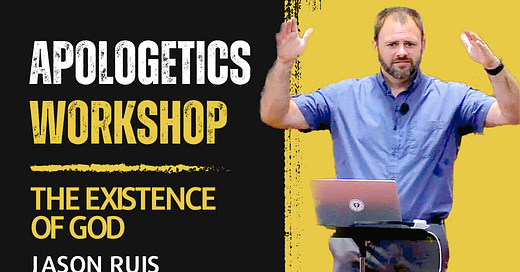
Making It Personal
“You know how I lived the whole time I was with you, from the first day I came into the province of Asia. I served the Lord with great humility and with tears and in the midst of severe testing by the plots of my Jewish opponents. You know that I have not hesitated to preach anything that would be helpful to you but have taught you publicly and from house to house. I have declared to both Jews and Greeks that they must turn to God in repentance and have faith in our Lord Jesus.” (Acts 20:18–21, NIV)
The Church & Marketing
In my sermon yesterday, I mentioned that the church has been sliding into a marketing mentality. We’ve decided that it’s our job to make God look good to our communities—which results in us smoothing off the “rough edges” of God’s image to make Him more attractive to our current culture. This is not good.
As the church has slid into this marketing mentality, I’ve noticed something else. We’ve also fallen into a marketing trap. The church is watching people use marketing to build successful businesses. They are using billboards, mailers, and social media to reach a broad audience. So, the church is using these tools to market the gospel—hoping to reach a broader audience.
Not All Bad, But Not Everything
This isn’t all bad. God has given us these tools to use in the spread of the gospel. Obviously, I don’t think we should “shun” these tools (otherwise I wouldn’t be blogging, would I?). So, yes, we need to be using these tools for the spread of the gospel, but we need to make sure we are using these tools rightly.
We also need to make sure we don’t make these tools the “be all, end all” for the spread of the gospel. It has been said, if you give someone a new hammer, everything becomes a nail. That’s what has happened with “marketing.” Many churches are placing all of their hope and trust in marketing for the spread of the gospel.
Here’s a scenario I have watched repeatedly in churches over the years. The church recognizes they need to do a better job reaching their community. So, they invest money, hiring an Outreach Director to lead them. What is the first initiative of that Outreach Director? They begin working on “building a brand” and “social media awareness” and “web presence” and “a welcoming atmosphere”—marketing.
The Problem With Marketing
Here’s the problem with marketing. It’s impersonal. At its core, marketing is creating ways to interact with people without having to interact with them. We create a cool logo, a cool website, an impressive mailer and have people interact with THOSE impersonal creations. The impersonal nature of marketing works in selling products because they are impersonal objects. It’s not effective at building relationship and presenting the gospel—very personal acts.
Making It Personal
Seventeen years ago I started by own business from scratch. I worked hard to market my business in all the right places. I created fliers and placed them in strategic locations where my customers would hang out. I paid for expensive advertisements in strategic locations. And guess what? My business doubled in size every six months for three years.
However, I didn’t receive one single customer from any of my marketing materials. Not a single one. How did I get all these new customers? Word of mouth. To make a stronger point, in the ten years I ran this business, I never received one customer from marketing material. Every single customer came to me through word of mouth.
Why? Because I wasn’t selling a product. I was selling a service. I was the product. It was personal. Sure, I could advertise that I ran my business with “honesty and integrity,” but that meant nothing without someone’s “testimony” to back it up. It was a personal transaction. And because it was a personal transaction, the “marketing” needed to be personal—it needed to travel by word of mouth.
The Gospel Is Personal
It’s the same with the Gospel. The Gospel is deeply personal. That means we need to spread the Gospel in personal ways. Sure, we can tell people that the Gospel changes lives in our marketing material, but that means NOTHING unless they see it happening in someone’s life. It needs to be personal.
That’s the power of the personal invite. It’s a personal transaction. You can look someone in the eye and tell them how the Gospel has changed your life. You can tell them stories about how Jesus has forgiven you and provided you comfort in difficult times. You can give testimony to the truth of the Gospel.
We all know this to be true. If we were to interview our churches, asking, “Why did you start attending church?” or “How did you become a Christian?”, the VAST MAJORITY would say, “Someone invited me” or “Someone talked to me.” It was the power of the personal invite.
Since we know this is so powerful, why don’t we invest more time and energy into this? Why spend so much time and money on social media and marketing? Think about how much influence/impact we could have if we spent our time and money building relationships, sharing stories about Christ, and inviting people to follow Him? I think it would change our churches and our world.









